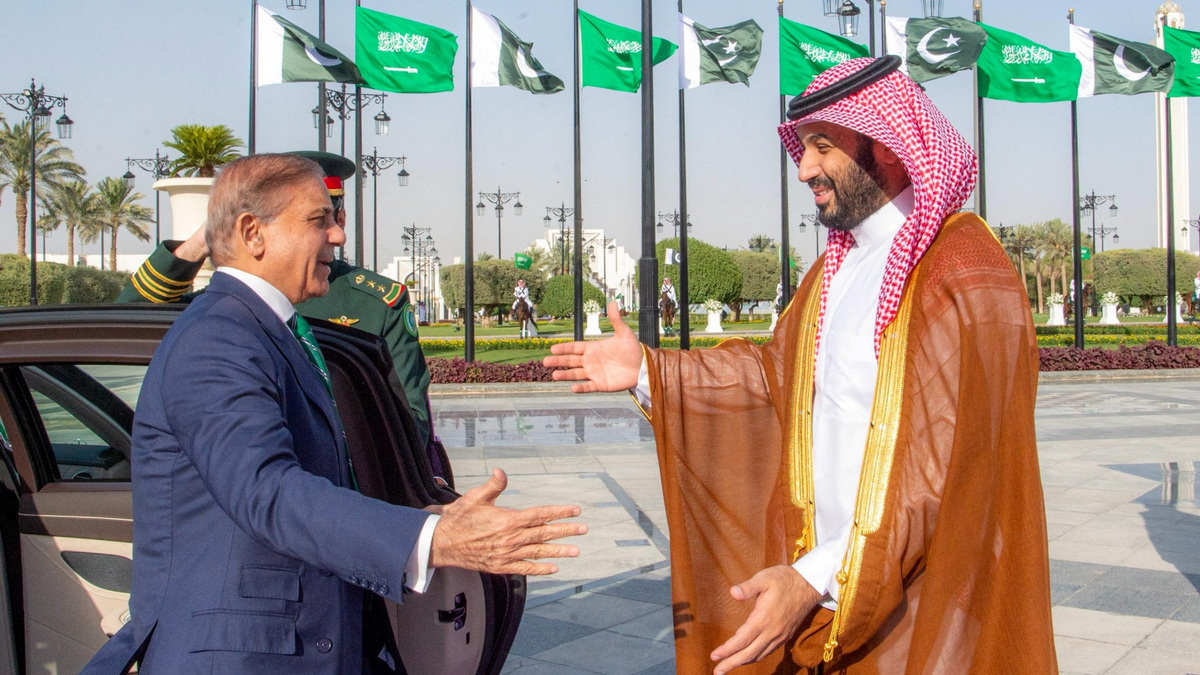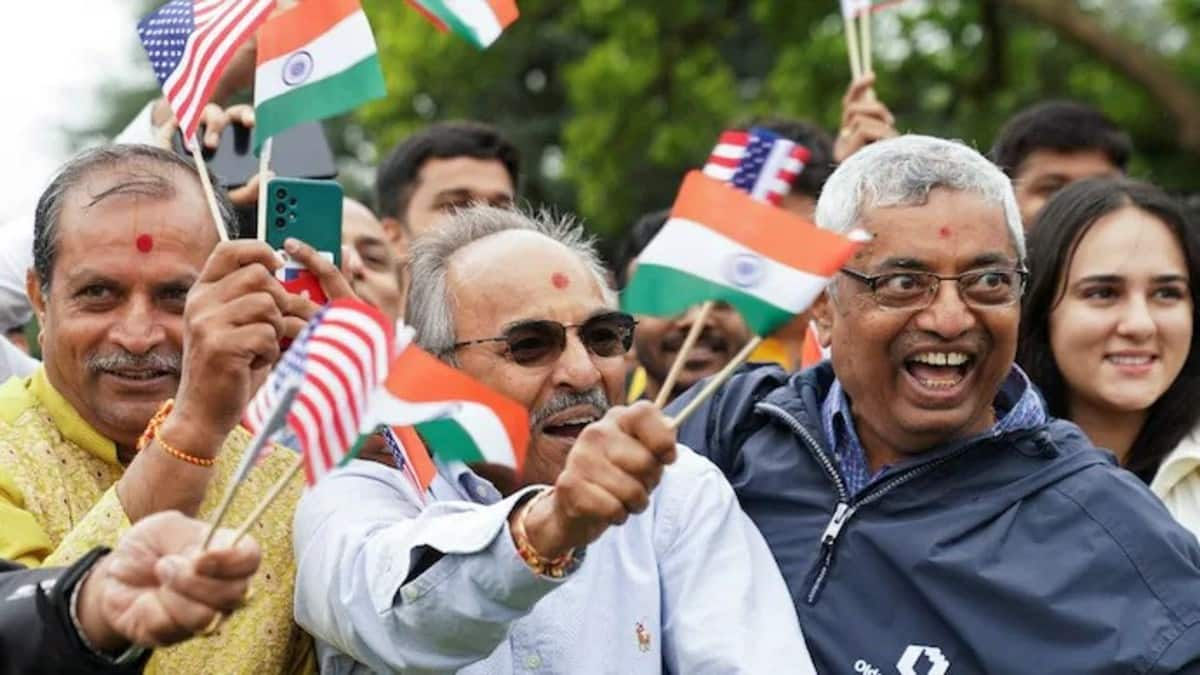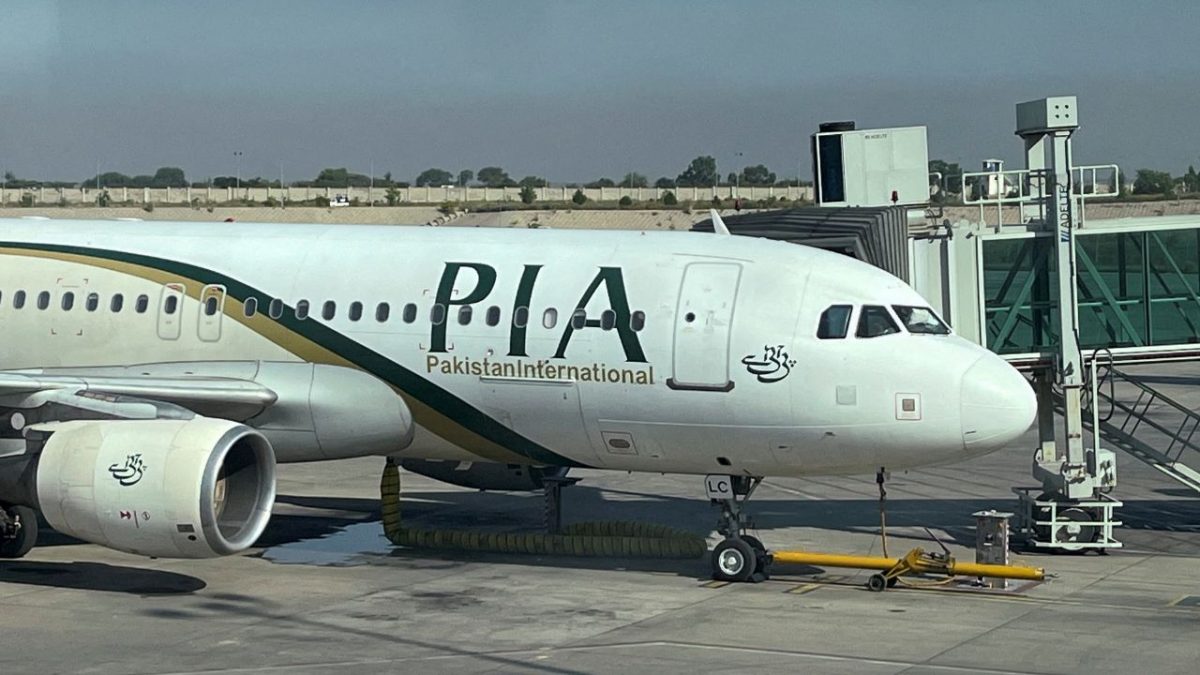India is left carrying the can as two of its closest strategic partners, Russia and Israel, with whom it shares deep trade, defence and security ties, have set about altering the geographical boundaries and geopolitical matrix of their respective theatres. One is an adversary of the United States, the other its staunchest ally, but the actions of both actors in their own spheres have created for India some challenging consequences.
Much has been written about Russia’s war against Ukraine and its fallout on India. New Delhi is grappling with ‘sanctions’ slapped by the Trump administration that wants India to stop buying Russian oil and defence equipment. The war in Europe has ended up bruising India’s ties with the US.
Another potentially tricky development unfolded on Thursday when Pakistan signed a ‘Strategic Mutual Defense Agreement’ with Saudia Arabia – a NATO-like arrangement where the central theme is “any aggression against either country shall be considered an aggression against both,” according to the joint statement issued after the deal.
There are several aspects to this curious agreement and multiple readings to interpret this development that has raised eyebrows in New Delhi. One of the first impressions dominating global media and analytical discourse is that Riyadh inked this deal with nuclear-capable Pakistan as an insurance against Israel’s muscular policy in West Asia.
This is by no means the only explanation, but it deserves serious consideration.
Israel’s military campaign in Gaza since October 2023 has fundamentally transformed regional security dynamics across the Arab world, creating widespread anger and insecurity among Arab nations since Israel’s actions create ripples far beyond the immediate conflict zone. The missile strike on Doha, Qatar’s capital, to take out Hamas leaders was as audacious as it was reckless, precipitating a dangerous escalation that Arab leaders viewed as crossing a fundamental red line.
Impact Shorts
More ShortsSaudi foreign ministry in a strongly worded statement had termed the attack as “blatant violation of the sovereignty of the State of Qatar” and expressed the kingdom’s “full solidarity and support for Qatar, and placing all its capabilities at its disposal to assist in any measures it may take.”
The shattering of the veneer of impregnability that the Gulf states thought they enjoyed even in a volatile West Asian landscape brought bitter reaction and a sense of vulnerability. Riyadh warned of “grave consequences of the Israeli occupation’s persistent criminal assaults and its blatant violations of the principles of international law and all international norms.”
Evidently, Israel’s gambit managed to punch holes in the traditional security architecture that Arab nations have depended on for decades, raising crucial questions on America’s reliability as the region’s security guarantor.
Qatar hosts the largest US military base in West Asia, the Al Udeid Air Base. It has “unconditionally” gifted Trump a luxury jumbo jet (Boeing, valued at $400m) in May that the White House plans to use as ‘Air Force One’. It has pledged trillions of dollars to the US economy. The key US ally still suffered an Iranian missile strike and an Israeli attack in quick succession, despite Trump’s “public pledge to ‘protect’ Qatar.”
It raises the sense of insecurity among Arab nations, and some feel they have been ‘forsaken’ by an inward-looking US, leading to a fundamental reassessment of the security matrix. As Anil Trigunayat, former Indian ambassador to Jordan, Libya and Malta, points out in Firstpost, “Dependence on hundreds of billions of dollars of sophisticated and advanced weapons systems and equipment bought by rich Gulf countries from the US has a red line that these will not be used against Israel.”
Faced with the threat of an unrestrained Israel, that has since the October 7, 2023, terrorist attack by Hamas taken its battle to Iran, Lebanon, the Palestinian territories, Qatar, Syria and Yemen, Arab nations have no good options and are locked in a ‘dual trap’.
They are struggling with an outraged population at home that is inflamed over Palestinian suffering and want their governments to act, and they risk significant retaliation from Israel if they do act against Israel. Most have therefore settled for symbolic responses such as summit declarations, diplomatic protests, and UN resolutions while staying clear of military action.
One of the prominent readings behind the development, therefore, is that the Saudis, disappointed with the lack of a “formal American security guarantee” and in possession of no better options, have decided to formalize their relationship with longtime, informal security partner Pakistan. Islamabad is mortgaging its nuclear weapons in lieu of economic benefits in a deal that addresses Riyadh’s insecurities, while the Pakistanis get a steady stream of funds and investments to survive.
This analysis suffers from one fatal flaw. The reaction of the United States. It reminds one of British writer Mark Haddon’s seminal murder mystery novel, ‘The Curious Incident of the Dog in the Night-Time’, written in 2003. That dog didn’t bark. And neither has the United States. In fact, American silence has been conspicuous. The Saudi Arabia-Pakistan deal involves extension of Pakistan’s nuclear umbrella to a key protectorate of the US, and it is decidedly curious that the Americans have nothing to say about it.
The complete absence of any official American response to such a significant nuclear proliferation, involving its treaty ally and a ‘major non-NATO’ ally, stands in stark contrast with typical American reactions to nuclear-related agreements. It is even more odd because neither side has played down the nuclear angle in the mutual defence agreement.
Reuters quoted a “senior Saudi official” on whether Pakistan would now be obliged to provide the kingdom with a nuclear umbrella, as saying: “this is a comprehensive defensive agreement that encompasses all military means.”
Writing in Arab News Pakistan, a Saudi state-linked outlet, Jamal Al Harbi, the media attaché at the Saudi embassy in Islamabad, observes, “for Saudi Arabia, the deal reflects its determination to diversify its strategic partnerships. While historically aligned with Western powers, Riyadh has, in recent years, sought greater autonomy in shaping its security policy. Pakistan, with its sizable military, nuclear capabilities, and geostrategic position, emerges as a natural partner.”
For its part, Pakistan has been ambiguous. In reply to a question on whether “the deterrence that Pakistan gets from nuclear weapons” will be made available to Saudi Arabia, Pakistan’s defence minister Khawaja Mohammad Asif told a TV channel: “Let me make one point clear about Pakistan’s nuclear capability: that capability was established long ago when we conducted tests. Since then, we have forces trained for the battlefield… What we have, and the capabilities we possess, will be made available to (Saudi Arabia) according to this agreement.”
On Friday, Khwaja seemed to walk back his earlier statement. Speaking to Reuters, he said nuclear weapons were “not on the radar” of the pact. “We have no intention of using this pact for any aggression… But if the parties are threatened, then obviously this arrangement will become operative.”
While this obfuscation could be a deliberate ploy to raise doubt in the minds of adversaries, suggesting that Saudi Arabia views potential access to Pakistan’s nuclear deterrent as a strategic hedge, London-based Financial Times quotes a commentator close to the Saudi royal court whose father served as ambassador to Pakistan in the 1980s, Ali Shihabi, as saying, that “the deal” puts Saudis under [Pakistan’s] “nuclear umbrella in case of an attack”.
So, to come back to my original point, why has the US State Department or the Pentagon not released any statement on a headline-grabbing nuclear proliferation, one that might be targeted at its staunchest ally?
The likeliest explanation is that the agreement has tacit American backing, what Pakistani analyst Ayesha Siddiqa calls “kosher proliferation” in The Print. It involves Washington DC making a calculated move to allow Pakistan to extend its nuclear umbrella and enter into a NATO-like alliance with its key client state in West Asia.
This postulation is further supported by what America didn’t do. It didn’t raise any objection to the deal, issued zero statement, and western media discourse has not even the slightest whiff of discussion on sanctions – that typically accompanies unauthorized nuclear proliferation activities.
So, the question is, why would Washington allow “kosher proliferation”?
One explanation is that it wants to cut Israel to size. If a hegemonic Israel goes out of control in West Asia, that poses strategic headaches for the Americans. We have Wall Street Journal reporting that Trump was furious with Israeli prime minister Benjamin Netanyahu’s missile strikes on Qatar, that he uttered ““He’s f—ing me” in frustration while chatting with his senior aides, including secretary of state Marco Rubio.
So, it is possible that a silent nod went from Washington DC to Riyadh for nuclear cooperation arrangement by roping in Pakistan, and sending a signal to Israel, the unofficial nuclear power in West Asia, that its hegemonic designs would be challenged.
A better explanation, however, is that Washington’s blessing for the Saudi-Pakistan mutual defence agreement is an anti-Iranian ploy. One of the unintended consequences of Israel’s aggressive military posture in West Asia is that it shows Iran’s proxy-based ‘axis of resistance’ offers a stabler pushback against Israel through asymmetric warfare, compared to the symbolic resistance offered by the Arab nations.
Though Iran has been weakened, it remains an actor of consequence in West Asia. The militia armies that it backs, such as Houthis in Yemen or Hezbollah in Lebanon, can still disrupt global trade routes and maintain pressure on Israel’s borders.
Despite what Trump may claim, Iran’s nuclear program has not been “obliterated”. The heavy military strikes inflicted by Israel and American bombers have destroyed much of Iran’s main nuclear infrastructure, but the program has not been completely eradicated. Its progress, according to analysts, has been set back by one to two years, and significant stockpiles and technical know-how likely remain.
The Trump administration has reinstated the ‘maximum pressure’ campaign on Iran and has announced that it will revoke the Chabahar port waiver, the special exemption from US sanctions granted since 2018 that allowed India and other countries to develop and operate the Chabahar Port in Iran without triggering American penalties. The decision is effective from September 29.
We also know that UN sanctions on Iran are likely to be reimposed by the end of September. With Saudi Arabia’s stated threat that it will pursue nuclear weapons if Iran acquires them, this mutual defence agreement provides Riyadh with immediate nuclear deterrence without the proliferation risks and timeline associated with weapons development.
Conversely, it serves American interests by providing Saudis with a nuclear deterrence that they require and rehabilitates Pakistan as a major player in West Asia – a reward for Islamabad’s subservience and sycophantic behaviour towards Trump.
The agreement, moreover, creates a Sunni nuclear-backed alliance that directly challenges Iran’s regional proxy strategy and could force Tehran to recalculate its approach to regional conflicts. This fits the strategic imperatives of America that is unwilling to lose strategic control over West Asia yet appears keen to reduce American military commitments. Pakistan, as always, is ready to fight others’ wars to run its mercenary economy.
In conclusion, I would cite a few more lines from the column written by Harbi the media attaché at the Saudi embassy in Pakistan, whose writing has in all likelihood been cleared by higher authorities. He writes, “In the Gulf, it (the deal) could affect the strategic calculus of Iran and other regional players… If effectively implemented, the agreement could redefine the security landscape of the Middle East and South Asia, offering both nations greater stability while reshaping the regional balance of power.”
The deal provides the Saudis with intelligence sharing, capacity building and draws on the kingdom’s historical defence and military collaboration with Pakistan that deepened after Iran’s 1979 Islamic Revolution. It had heightened Saudi fears of Shia revolutionary expansion. Old fears die hard.
The writer is Deputy Executive Editor, Firstpost. He tweets as @sreemoytalukdar. Views expressed in the above piece are personal and solely those of the author. They do not necessarily reflect Firstpost’s views.


)

)
)
)
)
)
)
)
)



